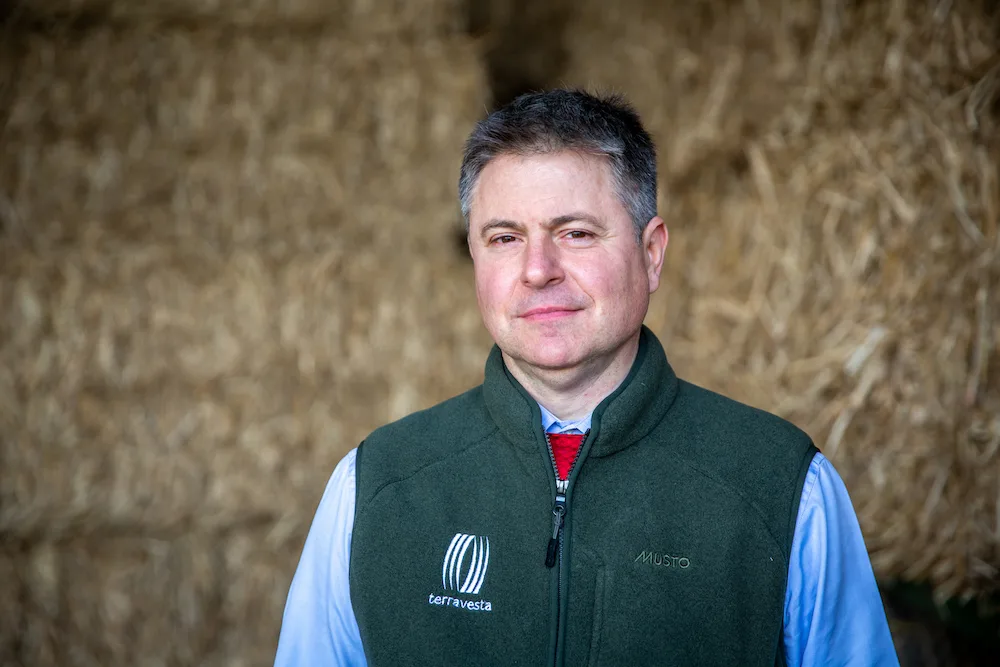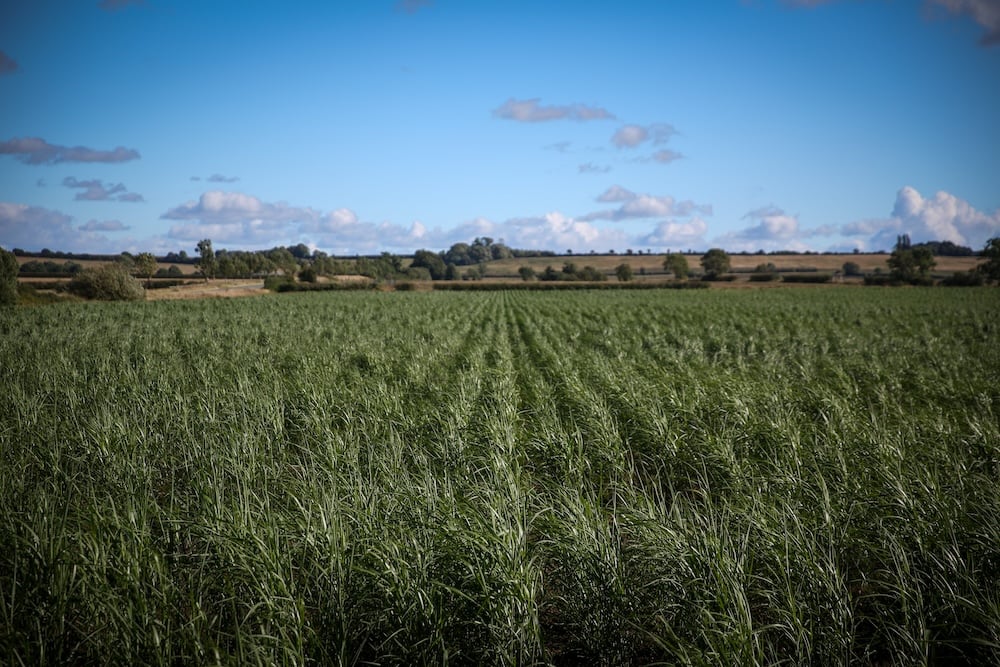Last Updated on July 30, 2025 by Sophie Wilesmith
IBERS scientists have significantly advanced the UK’s capacity to deliver sustainable biomass through their pioneering work in the Miscanspeed project, funded by the Department of Energy Security and Net Zero (DESNZ). The project has fast-tracked the breeding process by implementing genomic selection in combination with speed breeding – drastically reducing the time needed to select improved crop varieties.
Meeting Net-Zero through smarter breeding
The UK Government has recognised biomass as a potential component in its plan to reach net-zero carbon emissions by 2050, with £36 million invested into supporting the production of sustainable domestic biomass through the Biomass Feedstocks Innovation (BFI) Programme. To meet the targets set by the Climate Change Committee (CCC), the planted area of biomass crops will need to increase from 8,000 hectares to approximately 700,000 hectares by mid-century, with Miscanthus expected to represent a majority of that, based on current trends. 2024 marked a big change in the UK electricity sector as generation from coal ceased and renewables contributed over 50% for the first time, with 40TWh (13%) sourced from biomass (carbonbrief.org). Imported biomass has come under scrutiny in the media and it is important to ensure a secure supply of sustainable domestic biomass.
To date, most of the UK’s Miscanthus has been planted with a single hybrid clone, Miscanthus x giganteus (Mxg). While it performs well, the project’s aim now is to increase yield and resilience, and diversify the crop, to ensure a robust annual harvest and long-term sustainability. The breeding program at IBERS targets the development of genetically diverse, high-yielding, and environmentally resilient Miscanthus varieties. However, breeding is an inherently slow process due to the perennial crop taking 3 years to mature – leading to long waits to evaluate the mature population and select the best performing individuals to be entered into the next crossing cycle. In the Miscanspeed project at IBERS, researchers developed and demonstrated a combination of novel breeding technologies to accelerate each Miscanthus breeding cycle from 3 years to 1, thereby fast-tracking the speeding up breeding cycle considerably.
A breakthrough in breeding: Genomic selection and speed breeding
To achieve genomic selection, researchers developed genetic markers across the Miscanthus genome and associated them with desirable traits such as biomass yield in a training set to create a genomic prediction model. This model was then deployed in the breeding populations to provide predicted rankings, based on the genetic markers, to select high-performing plants at the seedling stage, rather than having to wait for three years to observe the mature plant.
“This will help us to more quickly develop new high-yielding Miscanthus varieties to provide sustainable biomass to help tackle climate change,” said Dr Kerrie Farrar, Miscanspeed project lead, at IBERS. “Fast-growing plants like Miscanthus are among the best natural tools for capturing atmospheric carbon and turning it into usable biomass.”
Dr Farrar was also part of the international team that sequenced the Miscanthus genome. It’s now possible to use this knowledge to improve traditional breeding systems. For example, the cost-effective marker panel developed in Miscanspeed is applicable across Miscanthus species. This will reduce the cost of genotyping and improve selection precision within the IBERS breeding programme, and it is available to the Miscanthus community to help integrate future research and breeding efforts.
Through the development of bespoke glasshouse facilities, researchers at IBERS manipulated flowering time and seed set in both M. sinensis and M. sacchariflorus, the two parental species of the commercial Mxg type hybrids. With careful adjustment of light, temperature and nutrients, high numbers of seed were produced from plants grown from seed within a single year in the UK. This is a major achievement for Miscanthus species, which typically don’t produce sufficient viable seed in the first year for a breeding programme. By addressing both biological and logistical challenges to flowering synchronisations and seed production, this work paves the way for future hybrid development.
Testing innovation, informing policy
IBERS also played a critical role in testing broader biomass innovations as part of a The Biomass Connect information hub led by the UK Centre for Ecology and Hydrology. These trials, held at eight locations across the UK, including at IBERS, have evaluated innovations such as planting methods and harvesting techniques and shared these findings both through practical demonstrations and a wide range of knowledge exchange material which can be found at Biomass Connect.
Realising the potential: In the UK and beyond
The benefits of the Miscanspeed project extend beyond UK borders. Genomic selection is adaptable, allowing for integration of new germplasm, genotype-by-environment interactions, and high-throughput phenotyping techniques. This will enable the accelerated development of new hybrids suitable for varied climates and sustainable supply chains for the UK and beyond.
An important component of the Miscanspeed project was a techno-economic analysis which outlined the ways in which the deployment of Miscanthus can boost the UK bioeconomy, support green jobs, and accelerate the shift from fossil-based fuels and materials to bio-based alternatives with negative carbon emissions potential – particularly when paired with technologies like carbon capture and storage (BECCS).
Final thoughts
The Miscanspeed project has established a robust foundation for delivering the next generation of Miscanthus varieties. By significantly shortening breeding times and increasing the diversity of available commercial hybrids, the work at IBERS ensures that Miscanthus remains at the forefront of the UK’s climate response, providing sustainable, high-yields of biomass from underutilised land, and scalable carbon reduction for decades to come.
To learn more about Miscanthus research and breeding, and the wider resilient crops programmes at IBERS visit IBERS, http:/www.miscanthusbreeding.org/ and follow the wider biomass information at Biomass Connect. [KF2]



